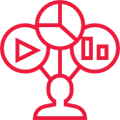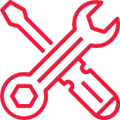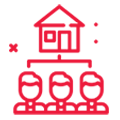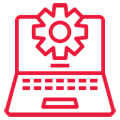If you think two hours can change your life, the answer is yes! Go from campus to corporate with Societe Generale’s Global Solution Centre (SG GSC) Career Guidance program.
This unique training will help you get ready to interview for the career of your dreams with a range of topics that will enhance your technical and non-technical skills across:

Behavioural skills

Technical skills

Inclusion

Development

Training

Social behaviour
Tips for Creating a Resume for Freshers
As a recent graduate, you may be wondering how to write a resume that would catch the attention of potential employers. The ideal format for your resume will depend on the qualifications and experience you have. However, there are some general pointers that may assist you in putting together a resume that is both efficient and expert.
When creating a resume for freshers, there are a few things you should keep in mind:
- Keep it concise: Unless you have a lot of relevant experience, your resume should just be one or two pages long. Employers are occupied people who lack the time to read lengthy, wordy resumes.
- Use keywords: Make sure to include resume keywords in your resume that are pertinent to the positions you are looking for. This will aid applicant tracking systems (ATS) in recognizing your resume.
- Highlight your aptitudes and skills: Your resume should make a point of highlighting your achievements that are relevant to the positions you are looking for. Be sure to quantify your accomplishments whenever possible.
- Use active verbs and strong language: Strong language and active verbs should be used in your resume to highlight your abilities and accomplishments. Your resume will stand out from the competition if you do this.
- Tailor your resume to each job you apply for: When applying for jobs, don’t just send the same resume everywhere. Spend some time customizing your resume to showcase the abilities and experience that are most pertinent to each job that you apply for.
To maximize your chances of success, consider the following tips when crafting your professional resume for job interviews:
- Formatting that is Simple and Clear: To make the text easier to read, use bullet points, clear headers, and a formal font. Focus on the most important facts, such as career objectives on a resume, and keep it brief.
- Showcasing Education: Highlight your educational background, including your degree, school, and any honors or essential courses.
- Highlighting Talents: Clearly state the technical skills and soft talents you have that are pertinent to the position you’re looking for. Give particular instances or accomplishments that illustrate your expertise.
- Projects and Internships: Showcase any projects, internships, or research efforts you have carried out throughout your academic career. Your position, duties, and the effects or results of those events should all be highlighted.
- Extracurricular Activities: Emphasise your extracurricular activities and participation in groups, organizations, or voluntary work that demonstrates your ability to lead others and collaborate effectively. This can provide essential details about your personality and potential.
Remember to tailor your resume for each application, optimize it with relevant keywords, and highlight your unique skills and experiences. With a well-crafted resume, you will stand out from the competition and increase your chances of landing job interviews. Investing time and effort into creating a strong resume will pay off in the long run.
Interview preparation guidelines:
If preparing for a job interview is crucial, it is because your performance in this meeting must be high quality – you cannot rely on improvisation in an interview, you must anticipate, prepare and practice answers to common questions. This way, you will be more relaxed and self-assured, and thus more convincing to your employers. What’s more, having done research and prepared questions is a clear indicator of interest and enthusiasm. In the eyes of recruiters looking to gage your commitment, preparation is valuable.
So, job seekers, if you’re wondering the best way to prepare for a job interview, we have 14 tips to guarantee your success! Relevant to all types of job interview (face to face, video, telephone), here is our job interview preparation checklist:
- Analyse the post
- Let yourself be guided by the job description, as it summarises all the qualifications, skills, training and qualities expected in the role. Underlining and noting down the key words can be useful.
- By analysing its contents, you will be able to identify which key interview questions you may be asked.
- Research the company by visiting its Careers webpage, for example!
- Answer the following questions: How is the company organised? What is the company culture? It’s recent news, and future plans? This will allow you to understand the role, its purpose, and your responsibilities better.
- Another top tip is to search on Google news for anything relevant: this will keep you up to date on recent important events affecting the company, if there are any.
- To help you: discuss with your peers, visit the company website and social media, keep informed of the economic news relevant to the sector.
- Prepare your introduction speech
- Reflect on your goals and your skills, as well as what inspired your application. Imagine you are responding to the question, “Why does this opportunity interest you?”
- Practice the answers to the questions you might be asked.
- Ask yourself if there’s any questions you would like to ask in return, for example what you’d like to know about the post and the environment, in order to ask lots of questions without hesitating!
- Take all the necessary documents with you: the email indicating all the details of the meeting, the job advertisement, your CV, your internship references and degree certificates, and your job interview preparation notes.
- Top tip : print off 4 copies of your CV, you could meet multiple people in one day.
- Don’t forget to take notes!
- Pre-prepare what you are going to wear. Be discreet and clean: nails, makeup, deodorant – double check everything. In terms of perfume: less is more! (Let that guide your choice!)
- Get your bearings and estimate the length of time it will take to get there.
- Read your CV carefully before the interview and consider preparing reasons your career choices and potential CV gaps... This will save you from being caught off guard and feeling uncomfortable
- If you’re early, a breathing exercise could do you good!
- Leave early enough to avoid delays
- During the interview,
- Be mindful of your body language and voice
- Speak naturally with confidence (while obviously monitoring your formality)
- Perfect your handshake
... and you will make the best impression!
The night before the interview, make sure you don’t forget anything. Here is a checklist we’ve made for you :
On the day itself:
Now you know how to prepare for a job interview, all that’s left is to wish you good luck!
